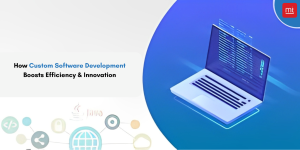Best B2B eCommerce Platform for Business Needs

The Covid-19 pandemic spurred mixed fortunes for many businesses. While some companies closed down due to unprecedented losses, businesses that moved their operations online realized up to a 19% uptick in their sales. UNCTAD noted that the Republic of Korea accounted for the biggest share of online sales in 2020, totaling 25.9%.
In the meantime, online retail sales reached $130.6 billion in the UK in 2020, higher than 2019’s 89.0 billion. These are far-reaching statistics for B2B businesses that are yet to move their operations online. A well-built eCommerce platform for B2B can help you create an intuitive shopping experience for your buyers and join the league of ventures making these enormous sales. Moreover, you’ll retain more customers for the long-term success of your venture.
The B2B eCommerce platform industry is growing rapidly, with reliable options already available in the market. However, picking the best platform among the myriad of available options can be pretty daunting. So, which factors should you look for in a platform? Which solutions should you pay attention to in 2021 and beyond? Here is a quick guide on the best B2B eCommerce platform for business needs.
Features to Consider When Choosing a B2B eCommerce Platform
A B2B eCommerce platform is the backbone of your venture’s operations. Business owners should follow precise and accurate criteria when selecting their options. This entails laying down your strategy with keen attention to the features of every solution. Then, match these features with your business needs to determine whether they are a perfect match.
Some features are apparent and cut across all platforms. For instance, most solutions focus on creating an intuitive user experience because that’s what ventures look for. Also, they can support high traffic volumes with zero downtime, ensuring you sell more during peak hours.
But that’s just a snippet. Not all platforms are agile enough to handle your intricate business needs. There are more less-obvious features that you should consider to ensure streamlined business forces. For example, pay much attention to the following:
- Customer Groups and Profiles Segmentation
Ideally, your B2B venture should treat customers equally. However, in the real sense, you might want to give specialized attention to customers who place bulk orders, such as wholesalers. This can be possible if you segment all your customers into groups and customize their shopping experience.
A well-thought-out B2B eCommerce platform should allow you to classify customer profiles based on their geographical location, catalog selection, order volume, and reorder frequency.
- Personalization Features
If you segment your customers, you’ll realize that you’re selling to different markets with varying needs. It will help if your go-to ecommerce order fulfillment process solutions support hyper-personalization features to meet these needs.
For instance, you should be able to roll out different landing pages with multiple languages to serve distinct geographical locations.
- Restricted Access Capabilities
As noted, all customers are important but not equal, depending on their purchasing trends and history. Moreover, some prices, products, and discounts are only for some customers, say registered users. On a more granular insight, you’d want to block some products from unregistered users. In that case, watch out for a platform that comes with in-built functionality to restrict access.
- Automation Features
B2B ventures move online because they want to avoid manual processes prone to inconsistencies and human error. A modern eCommerce solution should share this overarching goal by offering business automation features. For example, it should support a custom-order workflow for buyers, starting from quoting, contract management to terms negotiation.
- Other Unique Features
The needs for B2B businesses vary. That said, watch out for any other feature that sets the platform from other solutions. Most importantly, these features should apply to your business needs. This includes the ability to scale and create additional web pages, customizable selling models, and third-party integrations.
The Best B2B eCommerce Platforms
Now that you know the features, which B2B platform solutions are worth your time and resources? How do they stack up against each other? Check out the following.
If you’re looking for a platform built solely for B2B commerce businesses, take a closer look at OroCommerce. This platform offers customized solutions for all B2B business needs, whether small-scale or enterprise.
It’s worth mentioning that OroCommerce developers are the same minds behind the foundation of Magento. That means it integrates the same principles and technologies for a user-friendly open-source architecture. Business owners can scale their operations based on the current needs, not projections or anticipations.
The platform offers customer self-service capabilities, including custom pricing and catalogs, robust workflows, and reliable customer history/ reporting. It also comes with a fully integrated OroCRM module at no hidden costs. Moreover, users can “turn off” this feature.
Other OroCommerce features that enhance B2B performance and scale include unlimited SKUs and catalogs, open API for quick integration, and custom content management features. Users can also advance to multiple selling models, including B2B2B, B2C, and D2C.
Magento is a go-to open-source eCommerce platform for many businesses, with active users surpassing 240,000 merchants. Although Adobe Magento focuses mainly on B2C businesses, the platform has several add-on features that cater to B2B merchants.
For instance, the solution offers multi-brand capabilities, meaning you can integrate all your brand outlets on one digital platform. It is also mobile-centric and provides an app-like experience to your customers.
Other integrated features that power B2B business needs on this platform include custom catalogs, pricing, and self-service customer portals.
Salesforce eCommerce platform is an excellent solution for ventures that want to leverage CRM processes to power their sales. The platform offers two broad solutions; sales cloud s and marketing cloud. Users can personalize customer experiences by unifying data on purchases and search history through AI-driven automation.
InsiteCommerce is a viable option if your industrial B2B venture requires both on-premise and cloud eCommerce solutions. The platform is ideal for manufacturers, distributors, and bulk retailers with specific needs of serving their customers over multiple channels. However, SMEs that need personalized catalog management and advanced back-end features will also find InsiteCommerce quite helpful.
The cloud platform solution is robust enough to meet varying B2B business needs. For instance, users can configure and integrate it with their PIM, ERP, and other useful back-end systems.
Oracle’s NetSuite eCommerce platform is an omnichannel solution that integrates seamlessly with the developer’s CRM, POS, and ERP. Moreover, it’s a great option for ventures that want to diversify in B2B, B2C, and D2C operations.
NetSuite offers several customizable features that enable business operations in multiple geographical locations. For instance, users can create and deploy multiple websites with ease. The platform also provides multi-language capabilities.
Choose the Best Platform That Matches Your Business Needs
It’s obvious that eCommerce is here to stay. However, the success of your B2B venture in this space depends on whether you can find a viable platform to power all your operations. Leverage this guide when doing your research to zero down your options. Most importantly, a platform will only be helpful if its features align with your business’ needs—choose wisely.






